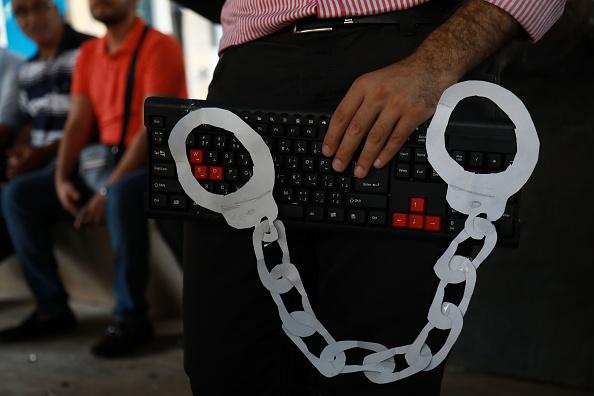
by hrw.org —Aya Majzoub — The sentencing of Lebanese TV correspondent Adam Chamseddine to three months in jail for “insulting” a security agency in a Facebook post is the latest escalation in the crackdown on speech criticizing public officials and state institutions. The prison sentence, the second issued to a journalist in absentia by a military court and one in a growing list targeting journalists, reflects all that is wrong with the continued prosecution of journalists for exercising their right to free speech. Chamseddine’s post criticized State Security for leaking details of an investigation of a detainee who had AIDS. Chamseddine claimed that the same State Security interrogators used a similar tactic with Ziad Itani, who was exonerated in 2018 of spying for Israel, knowing that in both cases, public opinion would turn against the suspects. There has been an alarming increase in the use of Lebanon’s criminal defamation laws, which authorize imprisonment for up to three years for insulting state officials and institutions. SKeyes, an organization that monitors free speech in Lebanon, recorded more than 90 prosecutions against journalists, artists, and activists since October 2016, with 62 in 2018 alone. Digital rights group, Social Media Exchange said the number of cases over online posts almost quadrupled between 2017 and 2018.
Military courts have such broad jurisdiction over civilians they can end up in military court for any interaction with security services or their employees. Defendants, lawyers, and Lebanese human rights activists allege that authorities are using this power to silence dissent. Chamseddine is only one of many outspoken journalists, activists, and human rights lawyers who have been tried in military courts. Those who have been tried in military courts have described torture, forced confessions, incommunicado detention, lengthy pretrial detention, decisions issued without an explanation, seemingly arbitrary sentences, and a limited ability to appeal. Such trials violate defendants’ rights to due process and international law. In Chamseddine’s case, local media reported that he was tried in absentia because he failed to receive appropriate legal notice to appear for questioning or in court. The threat of arrest and the possibility of ending up before a military court have a deep chilling effect on critics of Lebanon’s government and state institutions. At a time when the state has failed to deliver even the most basic of services to its citizens and has engaged in serious rights violations, public debate should be encouraged, not persecuted.



